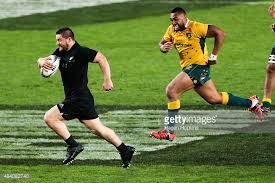Your essential All Black RWC Selection Guide
0A lot has been written about who’s getting in and who isn’t but there are a number of factors and precepts that most pundits and paid Journalists seem to have either omitted or plain forgotten about when it comes to RWC’s and selection of the associated All Black squad.
So let’s have a wee look:
The Rugby World Cup is really two tournaments rolled into one for the All Blacks. In phase one, the All Blacks scorch everyone in front of them scoring 40+ tries (as occurred in 2007) in preparation for the knock out stages (Phase Two).
It’s no different this year where the All Blacks are in a painfully weak Pool C with only Los Pumas (severely limited) and Tonga (likely to rest top players) to provide any stern resistance in what become opposed training sessions very quickly. This means everyone gets a run and the All Blacks must protect the three players they simply can’t replace adequately in the form of Future Prime Minister McCaw, Aaron Smith and Maa Nonu. If any of these three pick up an injury against a team like Namibia, the All Blacks chances in phase two nose-dive significantly. They must be protected at all costs during the pool stages.
So what does all this mean?
The Backs.
You have to take 3 halfbacks with the third insurance against the Aaron Smith scenario. This means the selection of Andy Ellis is imperative. Not everyone’s favourite, Ellis is low error, vastly experienced, knows the All Black system and most importantly has played in two previous RWC’s.
You have to take Israel Dagg and Cory Jane. Dagg’s long raking punt and Jane’s error free record under the high kick (which permeate RWC’s as teams hustle for field position during the knock out stages in search of vital penalties) may be as important as it was in 2011 in the Quarter and Semi Finals when he was best-on-field by a kilometre.
So who misses out then?
Nehi Milner-Skudder and Charles Piatau. NMS was found out under the high kick in the SupeRugby final against the Highlanders and again during the first half of Bledisloe II (remember we are likely to face high ball recovery specialist Israel Folau in a Semi-final). RWC playoff matches are games of attrition and exercises in extreme risk management which will not suit these 2. The selectors must go for the 2011 experience and avoid a back three with zero RWC experience (which is a distinct possibility).
What about Williams?
No, no, no, no and again NO. Forget the pool stages, he simply cannot be risked at the business end of the tournament in the event Nonu gets injured. The thought of SBW running sideways across field holding the ball in one hand in a winner-takes-all RWC playoff game means he cannot be selected. Remember the shoulder charge against Australia in 2011? Sevens should be this multi-talented Marketer’s dream focus from here in. If Aaron Cruden was fit – maybe, but he isn’t.
So who then?
Ryan Crotty. Low error rate, sound kicking game, perfectly suited to a RWC knockout match. In the event a game is in the balance, Malakai Fekitoa on for Conrad Smith at the 60 minute mark (which could happen a bit this time) will provide all the flair needed to win games late.
What about all those Number tens?
Take who you like but in the event Dan Carter gets injured (a very real possibility unfortunately), Beauden Barrett (little recent quality play or goal-kicking form), Lima Sopoaga (ONE test only) and Colin Slade (no starts at 10 in a test match since the last RWC) means we will be in a similar position to 2011. Again, Aaron Cruden will be missed.
The Forwards.
Pick who you like but only take Three locks as Retallick and Whitelock will play all the knockout stuff (and why is Luke Romano being touted ahead of Jeremy Thrush)? Take Five Props as predicted and pray Dane Coles doesn’t break down.
See – easy.

